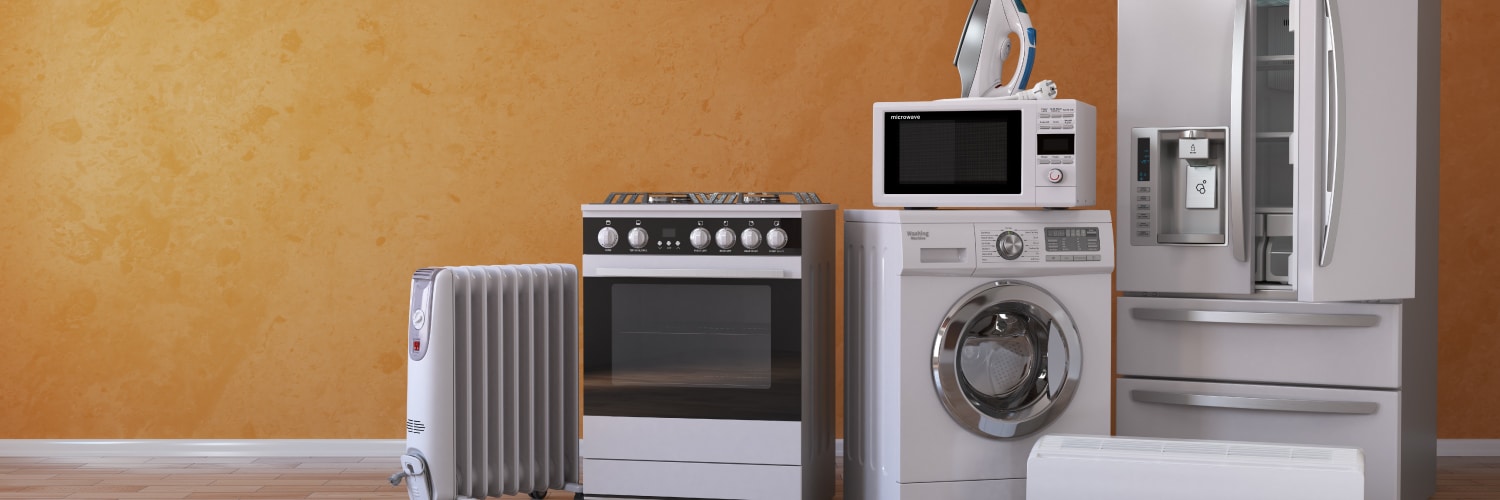White goods are large electrical appliances that we use in our houses, mostly to make our lives better and more comfortable. In the olden days, these goods used to be painted with white enamel, hence the name white goods. However, in our current world, some of these white goods come in other different colours such as metallic silver or other fashionable colours shades, to make them appealing to the customers.
Examples of white goods include:
- Fridges
- Washing machines
- Deep freezers
- Ovens
- Stoves
- Clothes dryers
There are also brown goods that people mostly confuse with white goods. Brown goods are mostly electronic entertainment goods, for instance, radios, television sets, CD players, among others. Brown goods are any other electronic goods apart from laundry and kitchen machines.
Although white goods make our life easier, they can be a threat and a burden on our environment. This is because most people do not dispose of their white goods appropriately, therefore, they end up in landfills.
White goods are made of plastics and other heavy metals such as cadmium, lead, and mercury, that are toxic when disposed of in landfills. These metals can sip into the underground water, making it toxic, or they are burnt up by sunlight releasing toxic gases that are harmful to the ozone layer.
Do you have white goods in your house that you do not know how to get rid of them? Below are responsible and environmentally friendly ways how to dispose of them:
1. Recycle
White goods are made of metal and plastics that can be recycled. The metal used to make white goods can be used to make new products. When thrown into a landfill, these bulky non-biodegradable goods remain there for years. To reduce the amount of waste in our landfills, give up your white goods to a recycling company.
2. Garage sale
If your white goods are still functioning well, yet you want to replace them, then sell them instead of throwing them out to a landfill. With great internet connectivity, you can post them on the internet or use classified sales within your local area. You can then use that money to buy new products or give it out for charity.
If you are not able to sell your white goods, you can post them up for exchange offers. Big companies such as Amazon have offers that allow members of the public to exchange nearly all types of electrical appliances.
3. Donate them to charity
Identify a charity organisation that may need that washing machine that you do not use anymore. By giving out a functioning oven to an orphans’ home, home for the old or victims of domestic violence, you are not only helping to make the world a better place but also you could qualify for a charitable tax deduction.
4. Contact your retailer
When buying a new white good, ask your retailer if they do take away the goods when they get old. Most retailers that take back these goods can recycle or dispose of them in an environmentally friendly way. If your retailer does not take back the goods, then contact your local area municipal public works department to find out if they have a standard way of disposing of your old washing machine.
5. Contact a local Appliance Repair Training School
Check whether a school within your locality teaches people how to repair white goods appliances. If there is one, contact them to see if they accept such appliances for use in their training.
6. Sell the goods to a scrap merchant
If you do not have an alternative way of disposing of your white good appliances, then contact a local scrap dealer. If you have a means of transport, they will ask you to transport the goods to their shops.
However, it is important to note that fridges and freezers have coolants that need to be disposed of in a special way; therefore, avoid selling them to a scrap dealer if they have no means of properly disposing of them.
Most white goods are durable. You will use them for many years before they become faulty. However, if you need to replace them, then remember to dispose of your white goods responsibly.
Do you have ovens, fridges, freezers, and other white goods that you do not know how to dispose of? Contact us by calling 0407 125 125 for a free consultation.







